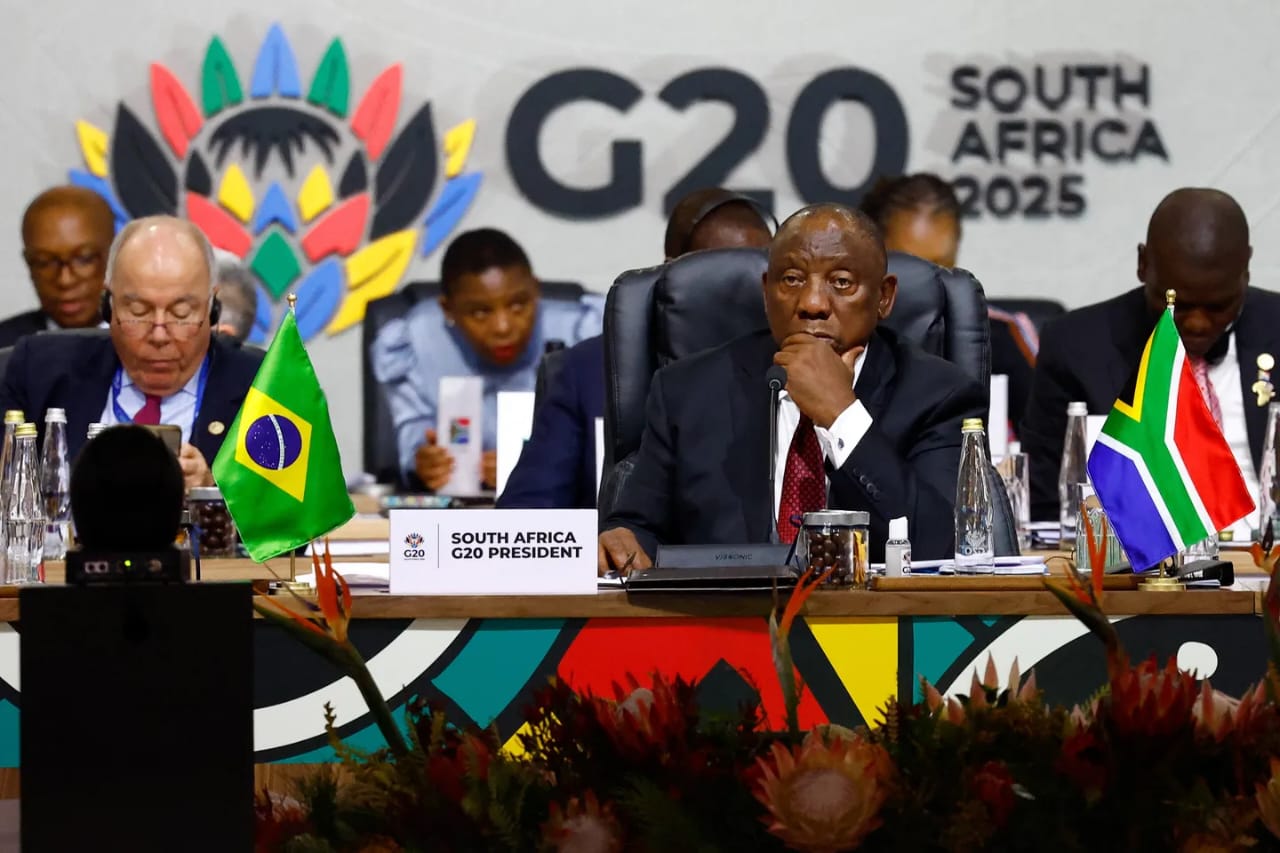

TORONTO: As South Africa hosted the historic G20 Summit in Johannesburg on November 22 to 23, 2025, the first G20 gathering ever held on African soil, global civil society groups urged the presidency to place caste- and descent-based discrimination at the center of its agenda on inequality and justice.
In a detailed memorandum submitted to the Government of South Africa, Sahayatra International Alliance and the leadership of the Global Conference for a Caste-Free World 2025 called on President Cyril Ramaphosa’s administration to use its influential role to highlight one of the world’s most entrenched yet often overlooked human rights challenges: caste-based discrimination affecting more than 260 million people worldwide.
The memorandum, signed by Dr. Drona Prakash Rasali, Chair of the Toronto Global Conference, and Santosh Bishwkarma, President of Sahayatra International Alliance, praises South Africa’s moral authority as a nation that has confronted racial apartheid and continues to uphold human dignity, equality, and structural justice. The authors note that the 2025 G20 theme, “Solidarity, Equality, Sustainability,” offers an important platform to integrate caste injustice into the global debate on inequality.
Recalling the landmark 2001 World Conference Against Racism in Durban, the memo highlights South Africa’s unique positioning. That conference was the first major international forum to explicitly recognize descent-based discrimination, including caste, as a structural human rights violation comparable to racism.
The memorandum argues that the Durban Declaration established a “race-plus” framework acknowledging that caste hierarchies function as inherited systems of exclusion embedded in education, economic life, and social structures. Dr. Rasali and Bishwkarma wrote that the 2025 Summit provides a rare opportunity to revive this legacy and link Durban’s vision to global economic governance by urging world leaders to challenge inherited hierarchies that perpetuate exclusion.
The push is further strengthened by the Toronto Declaration 2025, adopted during the Global Conference for a Caste-Free World held in May 2025. The Declaration outlines a comprehensive global strategy for dismantling caste discrimination. It calls for the legal recognition of caste discrimination on par with racial discrimination and urges constitutional and legislative reforms to include caste as a protected category. It also emphasizes the need for educational reforms introducing anti-caste curricula and public awareness programs, as well as the development of a Global Caste Discrimination Index.
Recalling the landmark 2001 World Conference Against Racism in Durban, the memo highlights South Africa’s unique positioning.
Additionally, it highlights the importance of reparative justice measures focused on community empowerment and political representation, along with partnerships with global platforms including the G20 to advance caste justice. The memorandum notes that these recommendations align closely with South Africa’s G20 priorities on diversity, inclusion, and equitable development.
The memorandum also refers to the G20 Global Inequality Report, prepared under the leadership of Nobel Laureate Joseph Stiglitz, which warns of an emerging “inequality emergency.” The report states that the richest 1 percent captured 41 percent of all new wealth generated between 2000 and 2024, while the bottom 50 percent gained only 1 percent.
It further finds that 83 percent of countries, representing 90 percent of the world’s population, now experience high inequality levels. The report projects that USD 70 trillion in inherited wealth will shift hands in the next decade, a trend the memo warns poses a structural threat to social mobility, equality of opportunity, and justice.
The Stiglitz Committee’s recommendations, including reforms to international tax rules, curbs on corporate concentration, and major investment in public services, are described as essential foundations for addressing caste-based inequities. The committee’s proposal for an International Panel on Inequality, modeled after the IPCC, is strongly endorsed as a mechanism for monitoring caste-based inequality alongside economic inequality.
The memorandum also refers to the G20 Global Inequality Report, prepared under the leadership of Nobel Laureate Joseph Stiglitz, which warns of an emerging “inequality emergency.”
The memorandum argues that the G20’s theme can only be realized if caste-based discrimination, one of the oldest surviving systems of inherited inequality, is confronted directly. It states that solidarity cannot be achieved while millions remain segregated by birth; equality requires dismantling hierarchical structures that deny opportunities based on ancestry; and sustainability remains incomplete without social justice and full participation of oppressed communities.
It adds that caste interacts with income, wealth, education, political representation, and gender, creating layers of inequality across G20 member states and global diaspora communities. Given this reality, the memorandum maintains that the G20 has both a responsibility and an opportunity to set new international standards in areas such as anti-discrimination law, data collection, and accountability.
The memorandum concludes by portraying Johannesburg as a symbol of resilience and renewal. It states that the 2025 G20 Summit represents a historic moment to link Durban’s legacy, Toronto’s global vision, and the Stiglitz Committee’s inequality framework into a decisive shift in global governance. “The South African Presidency,” Dr. Rasali and Bishwkarma wrote, “could catalyze a historic turning point: embedding caste justice within global economic governance.”